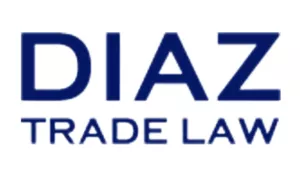- with Senior Company Executives and HR
Legislative Background
In response to the increased enforcement burden on U.S. Customs and Border Protection (CBP) caused by a rapid increase in trade volumes and difficulties associated with inaccurate entry documentation, the Customs Modernization Act (the Mod Act) became effective law on Dec. 8, 1993. The Mod Act, which comprised of Title VI of the North American Free Trade Agreement (NAFTA) Implementation Act, amended portions of the Tariff Act of 1930, a foundational statute in U.S. trade law.
The Mod Act requires importers to use reasonable care to enter, classify, and determine the value of imported merchandise and to provide any other information necessary to enable CBP to properly assess duties, collect accurate statistics, and determine whether other applicable legal requirements, if any, have been met. Specifically, the Mod Act requires complete and accurate information regarding tariff classification, product valuation, country of origin markings, duty preferences, claims, quantities, proof of payment, and shipment details.
Informed Compliance
Informed compliance and shared responsibility are two concepts which emerged from this law. The Mod Act fundamentally changed the landscape in the enforcement of CBP laws and regulations, especially in terms of shifting the legal responsibility to the importer in declaring proper value, classification, and rates of duty applicable to imported merchandise. Not only did the Mod Act impose a greater obligation on importers to ensure they are performing due diligence (reasonable care) when importing, but also placed an onus on CBP to provide the public with improved information and guidance-e.g. via "Informed Compliance" publications - on CBP laws and regulations as well as importers' responsibilities. Both the trade community and CBP are equally responsible for carrying out these requirements, and this cooperation is intended to foster greater transparency and compliance.
Importers are at risk of being subject to enforcement actions by CBP if they do not comply with the reasonable care standard when importing goods into the U.S. This article provides an overview of CBP's expectations of an importer and practitioner's tips to avoid CBP enforcement actions.
Duty to Exercise Reasonable Care
Under the Mod Act, importers are required to exercise "reasonable care," which requires importers to conduct themselves as a reasonable importer would under the circumstance with respect to importing prior to entering goods into the United States. Reasonable care requires importers to:
- Meet the standard to enter, classify and determine the value of imported goods
- Provide other information necessary to aid CBP in properly assessing duties and collecting accurate statistics
- Determining whether other applicable legal standards and requirements have been met
In order for the trade community to effectively comply with this standard of care, the Mod Act imposed a new obligation of transparency on CBP to provide the public with guidance on their legal obligations regarding customs and trade regulations. From a practitioner's perspective, CBP is a labyrinth of an Agency with various departments, offices, divisions, and units that play critical roles in facilitating legitimate trade and border security. CBP's laws and regulations are ever- evolving.
As a practitioner, it is imperative to learn the inner workings of the agency's system in order to effectively represent a client's interest. Customs issues are frequently technical, and their resolution often requires knowledge of and expertise in a variety of interrelated customs principles. The risk of noncompliance can lead to significant CBP enforcement actions. It is highly recommended to advise importers to engage an experienced professional to provide "pre-compliance" assistance prior to importing. If an enforcement action by CBP has commenced, it is similarly imperative to engage experienced counsel to assist in mitigating CBP enforcement.
CBP's Informed Compliance Publication, What Every Member of the Trade Community Should Know: Reasonable Care, provides valuable insight and an invaluable checklist for importers to utilize in ascertaining whether their current processes follow CBP's reasonable care standard. The Informed Compliance Publication topics are arranged as listed below. Accordingly, this article is organized in the same order:
- Merchandise Description and Tariff Classification
- Valuation
- Country of Origin/Marking/Quota
- Intellectual Property Rights
- Forced Labor
- Miscellaneous
Practice Tip: It is highly recommended for importers to use the reasonable care checklist when drafting policies and procedures, and/or an import compliance program.
Merchandise Descriptions & Classifications
All merchandise imported to the U.S. is either subject to, or free of, duties in accordance with the Harmonized Tariff Schedule of the U.S. (HTSUS). The HTSUS is used to determine an imported article's duty rate and whether the article is eligible to use a free trade agreement or any other trade preference program. The HTSUS also differentiates between general and special rates of duty.General rates are intended for countries that have normal trade relations status with the
U.S. while special rates are for countries with which the United States has one or more special tariff treatment programs.
Practice Tip: Quite often, importers will rely upon customs brokers to determine the most accurate HTSUSprior to filing an entry summary with CBP. The liability is upon the importer of record to ensure the correct HTSUS is used. Therefore, it is highly recommended for importers to review the HTSUS carefully and proactively provide the most appropriate HTSUS to the customs broker (instead of having the broker choose the HTSUS). If an importer does rely on a broker for their expertise, the importer is highly recommended to review the HTSUS and ensure the broker is in fact classifying their product correctly.
Under §1484 and §1481 of the Tariff Act, it is a requirement for importers to provide a correct and accurate description to CBP and tender the appropriate amount of duties to CBP. Importers are also encouraged to review CBP's informed compliance publications and prior CBP rulings on the Customs Rulings Online Search System (CROSS). Additionally, importers are encouraged to consult a customs expert, often a customs attorney to make sure they are compliant.
Practice Tip: Importers are encouraged to seek a binding ruling from CBP. Binding rulings are issued by CBP at no cost to importers. It is important to note that these rulings are binding, and importers must do their research and due diligence prior to requesting a ruling in order to have the best chances of obtaining a favorable ruling. We highly encourage importers to advocate for the result they want CBP to consider. Additionally, if an importer cites to 19 C.F.R. Part 177, and requests a call with CBP should CBP disagree with an importers request, CBP must have the call with the importer and provide the importer the right to withdraw the ruling request.
Practice Tip: Importers should ensure that they can answer the following questions accurately pertaining to merchandise descriptions and tariff classifications prior to importing:
- Have you established reliable procedures to ensure you provide a correct and complete description of your merchandise on your commercial invoice in accordance with 19 U.S.C. §1481?
- Have you included a correct tariff classification to CBP on your Customs Entry Form 7501, in accordance with 19 U.S.C. §1484? Consult CBP's informed compliance publication, What Every Member of the Trade Community Should Know About: Tariff Classification.
- Have you obtained a CBP binding ruling, and if so, have you followed the ruling and brought it to CBP's attention by having your broker include the ruling number in ACE when filing your entry? Rulings may be submitted electronically through the eRulings template.
- Where merchandise description or tariff classification information is not immediately available, have you established a reliable procedure for obtaining and providing that information?
- Have you consulted the HTS, CBP's informed compliance publications, court cases and/or CBP's rulings on CROSS to assist you in describing and classifying the merchandise?
- Have you consulted with a customs attorney or another expert in customs law?
- If you are claiming eligibility for a conditionally free or special tariff classification/provision, how have you verified that the imported merchandise qualifies for such status? What documentation to support that claim? Does your documentation go back five years covering the statute of limitations period?
- Is the nature of your merchandise such that a lab analysis or other specialized procedure is suggested to assist in proper description and classification (i.e., a chemical)?
- Have you developed a reliable written import compliance program covering your process to assess and document the correct HTSUS for your imported merchandise?
Click here to continue reading . . .
What Is An Importer's 'Reasonable Care' Standard?
Originally published in Bloomberg Law
The content of this article is intended to provide a general guide to the subject matter. Specialist advice should be sought about your specific circumstances.


